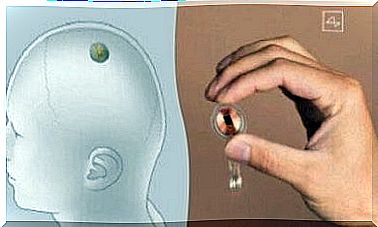The Psychological Profile Of The Femicide

The murder of women at the hands of their partners or ex-partners is a serious social problem. Many organizations work hard on gender-based violence; the goal is to establish policies for raising awareness, education, prevention and treatment of the problem. In everyday life, knowing the psychological profile of the femicide is fundamental.
Psychology has launched several research projects aimed at tracing the identikit of the feminicide. These efforts are aimed at eradicating gender-based violence, yet therapeutic treatments for violent men have so far been of little effect.
This article is based on the research study by psychologist and criminologist Raúl Aguilar Ruiz, published last October. This study reveals four different psychological profiles of the feminicide, the characteristics and possible therapeutic approaches to be applied in each case. Research provides valuable data to refine therapeutic interventions.
I study
The research examined in this article is based on the analysis of 237 convictions for femicide. The murders selected for this study were committed by men suffering from a mental disorder at the time of the perpetration of the crime.
The study also considers the relationship between mental disorder and the degree of psychic damage. He also talks about the possible link between suicidal behavior and the end of the relationship. The results offer four psychological profiles of the femicide.

The psychological profile of the femicide
Type 1: mentally ill
They are men who suffer from a mental disorder, but with no apparent characteristics of criminal danger. Among the disorders observed, the most common are psychotic symptoms, bipolar disorder or delusional disorder. These are men with unprecedented violence inside and outside the family unit.
They do not file complaints of women against them in the year preceding the crime. Everything suggests that the murders at the hands of this profile are the consequence of serious psychopathological crises, therefore, the motive is not of a passionate type.
Type 2: antisocial / coercive
These men have a history of violence, accompanied by alcohol and drug abuse. They committed violence inside and outside the family environment.
They appear to suffer from narcissistic and antisocial personality disorders, but show no symptoms of depression or anxiety. They react violently to abandonment or jealousy, which unleash violent and unpredictable attacks against women.
Type 3: normalized / frightened
Have severe depression and anxiety before ending a relationship. Although he has never abused alcohol or drugs, he is violent towards his partner. The year preceding the murder was punctuated by numerous conflicts and frequent complaints by the victim.
This psychological profile of the femicide will typically resort to suicide threats in response to abandonment by the partner, but not of the complaints she has filed.
Psychological profile of the femicide 4: moderate / jealous antisocial
The trigger in this case does not seem to be the abandonment by one’s partner, but rather the jealousy of another man. In these cases the motive is passionate. This profile typically suffers from mood and neurotic disorders.
The therapeutic intervention for each psychological profile of the femicide
The study also indicates various intervention strategies depending on the feminicidal profile.
- For type 1, treatments focused on the positive symptoms of psychosis could be used.
- Antisocial / coercive abusers may respond well to impulse control and anger-based therapies. It would also be necessary to include treatment to solve addiction problems.
- For profile 3, i.e. the normalized one, stress and anxiety control techniques are effective. It would also be good to help him manage the separation from his partner.
- In the case of moderate / jealous antisocial femicide, treatments that help address pathological jealousy and substance abuse are recommended .

Future research
Psychology has focused above all on the psychological profile of the number 3 femicide, that is, the normalized one. This is because, according to the data, it presents aspects and characteristics more similar to conventional men rather than the violent profile of a criminal. They are therefore more difficult to recognize.
Studies based on this profile would help to better understand the psychosocial factors influencing the femicide. This would allow a further step forward in the detection of violence and potential murder, but also in the improvement of therapeutic interventions related to femicide.








